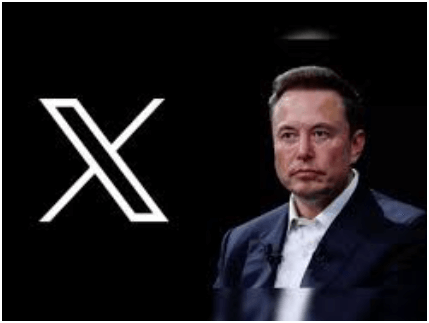
EU Eyes Comprehensive Action: Expanding Probe into Elon Musk’s X for Greater Accountability
EU Considers Expanding Probe into Elon Musk’s X
The European Union is weighing the possibility of broadening its investigation into X, the social media platform formerly known as Twitter, owned by tech entrepreneur Elon Musk. This development comes amid growing concerns about the platform’s compliance with the EU’s Digital Services Act (DSA) and its role in combating misinformation, hate speech, and other harmful content online.
The DSA, implemented to create a safer and more accountable digital environment, sets rigorous standards for tech platforms operating within the EU. It requires platforms to act swiftly against illegal content, enhance transparency about their algorithms, and provide users with tools to report harmful posts. As one of the world’s largest social media platforms, X faces heightened scrutiny under these regulations, and initial findings have raised questions about its adherence to the law.
Sources close to the matter suggest that the EU’s decision to potentially expand its probe follows recent complaints from digital rights organizations and feedback from member states. These groups allege that X has failed to adequately address the proliferation of harmful content on its platform, including extremist rhetoric, fake news, and targeted harassment. While X claims to have implemented robust measures to comply with the DSA, critics argue that the platform’s self-regulation efforts are insufficient, particularly given its reduced workforce following widespread layoffs under Musk’s leadership.
A focal point of the EU’s concerns is X’s content moderation practices. When Musk acquired the platform in 2022, he made sweeping changes, including slashing the moderation team and altering the rules for account suspensions. Critics argue that these decisions have contributed to a less safe online environment. Reports have surfaced suggesting that harmful content, such as hate speech and disinformation, has increased under the platform’s new policies. The EU is now questioning whether these changes align with the DSA’s requirements.
Moreover, the platform’s algorithm transparency and data-sharing policies have also drawn scrutiny. The DSA mandates that large platforms provide researchers with access to data for studies on systemic risks, such as disinformation campaigns or the spread of harmful content. Advocacy groups and researchers have claimed that X has not been fully cooperative in this regard, raising further doubts about its compliance. The platform’s lack of clarity on algorithmic decisions, such as the prioritization of certain posts, has compounded these concerns.
X has publicly defended its position, asserting that it is committed to adhering to the DSA’s guidelines. The company has highlighted several measures it has undertaken, including implementing advanced artificial intelligence tools for content moderation and introducing new user safety features. In a statement, an X spokesperson emphasized that the platform remains “dedicated to fostering an environment where freedom of expression thrives, while taking necessary steps to combat harmful behavior.”
However, the EU appears unconvinced by these assurances. In recent months, European regulators have increased their scrutiny of tech giants, and X is no exception. Earlier this year, the European Commission flagged X for its inadequate response to disinformation campaigns related to the Russia-Ukraine conflict, suggesting that the platform failed to remove state-sponsored propaganda promptly. This has fueled speculation that the EU may pursue a more rigorous investigation, potentially leading to penalties if X is found to be non-compliant.
Elon Musk’s personal involvement in the platform’s operations has also added a layer of complexity to the situation. Known for his outspoken nature, Musk has frequently clashed with regulators and critics alike, often using the platform to voice his opinions. His hands-on approach to X, including direct engagement with users and public commentary on policy decisions, has made the platform’s governance a subject of global attention. While some admire Musk’s vision for a more open and unfiltered digital space, others argue that his approach undermines accountability and regulatory compliance.
The implications of the EU’s expanded probe could be far-reaching. If X is found to have violated the DSA, it could face substantial fines, potentially amounting to 6% of its global annual revenue. Such a penalty would serve as a warning to other tech companies about the seriousness of the EU’s digital regulations. Additionally, non-compliance could result in operational restrictions within the EU, impacting X’s user base and revenue streams.
Beyond financial and operational consequences, an expanded probe could also damage X’s reputation. Public trust in social media platforms has already been eroded by scandals involving data breaches, privacy violations, and the spread of harmful content. A formal finding of non-compliance could further alienate users, advertisers, and stakeholders, compounding the platform’s challenges.
For the latest updates-click here.


